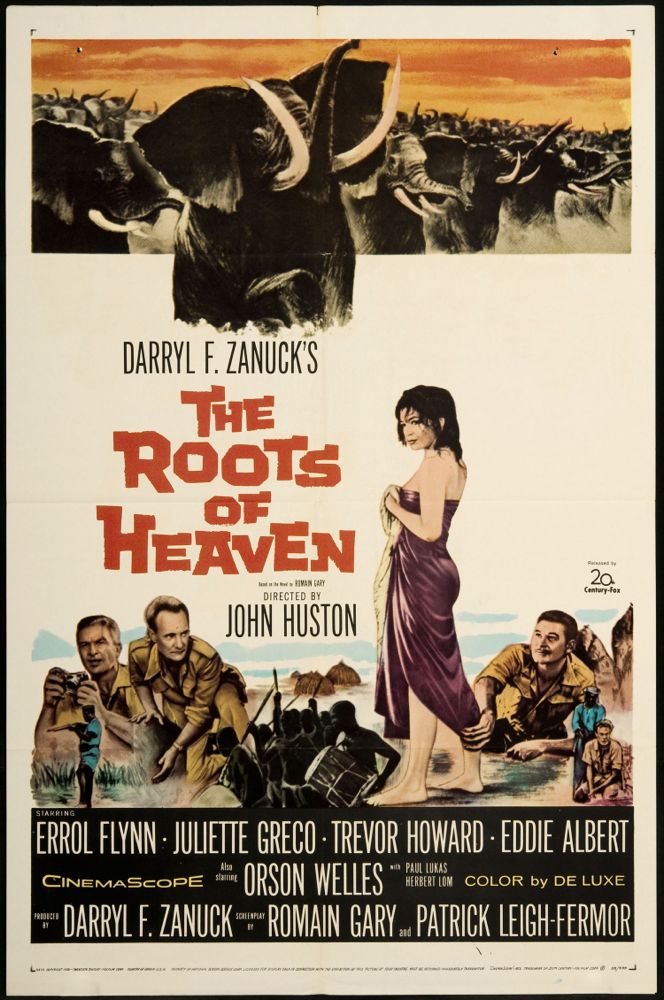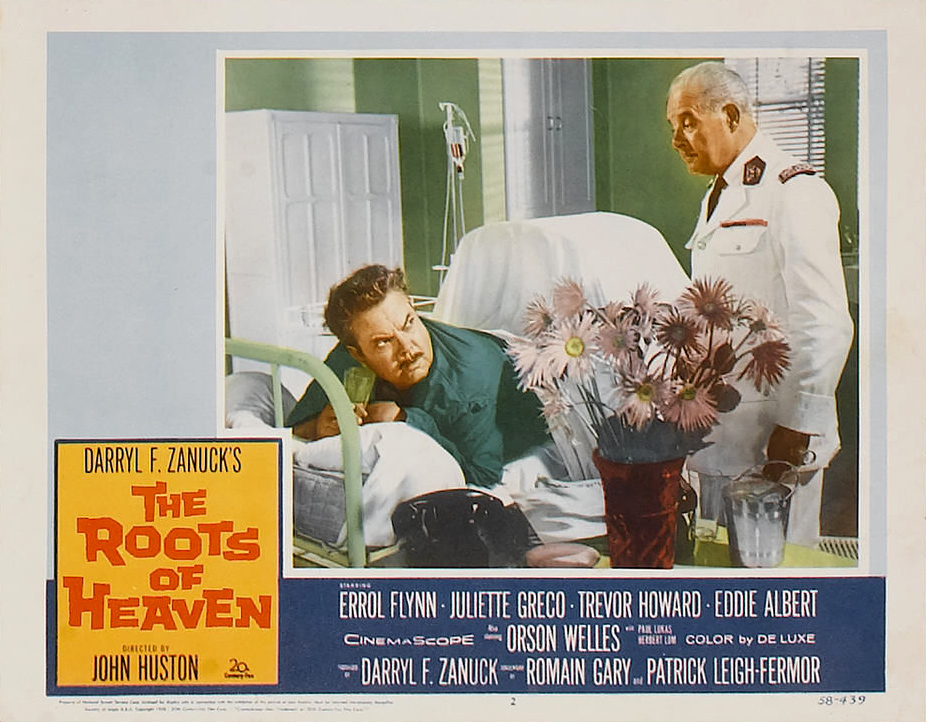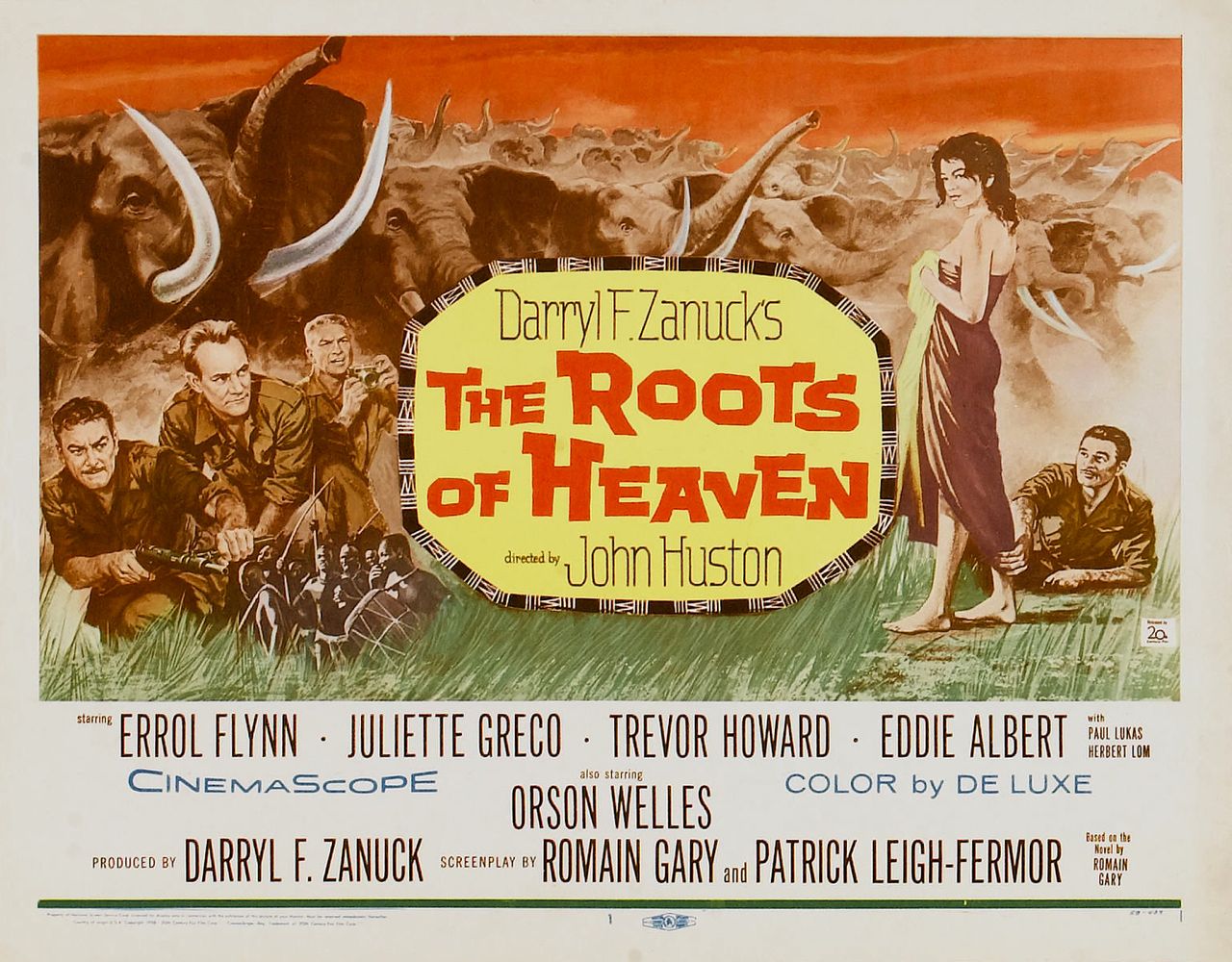It’s been said that the deal is the true art form in Hollywood, and there are indeed some films in which the deal defines the work, is the central meaning of the work. There were many such films in the 50s and 60s, when the studios were in decline and big international productions were cobbled together by clever producers marshaling elements from disparate sources.
The Roots Of Heaven, from 1958, strikes me a such a film. It’s a movie based on a prestigious novel by Romain Gary, directed by Hollywood legend John Huston, and featuring several marquee-name actors like Erroll Flynn and Orson Welles. These elements are the film’s principal raison d’etre — you don’t get a sense that any other vision or passion fueled the project.
The “elements” deliver, for the most part. The story is interesting, there are a few wondrous cinematic passages engineered by Huston, Flynn and Welles have their delicious moments. But the film has no core, no defining energy. What you find yourself thinking about as the film dawdles along is Daryl Zanuck’s calculation — “If I throw all these attractions into the pot, the stew will be irresistible!” But there’s more to a stew than its ingredients — there needs to be a chef involved who knows how to cook, how to make a savory meal of the thing.
Sometimes just leaving out the salt, or putting in too much salt, is enough to wreck the dish. Zanuck’s major miscalculation was casting his girlfriend of the time, Juliette Gréco, in the female lead. She just didn’t have the star power to head a cast like this. Casting Trevor Howard in the male lead opposite her wasn’t entirely Zanuck’s fault — William Holden dropped out of the role before shooting started and Zanuck had to take what he could get in order to keep the production together. Howard is a fine actor but again didn’t have the star power to carry a picture like this.
In any case, Zanuck’s recipe was good enough to attract financing — even if it wasn’t good enough to make for a memorable repast. The film is fascinating and enjoyable enough, which perhaps goes to show that the deal can sometimes be a form of entertainment as well as art.



